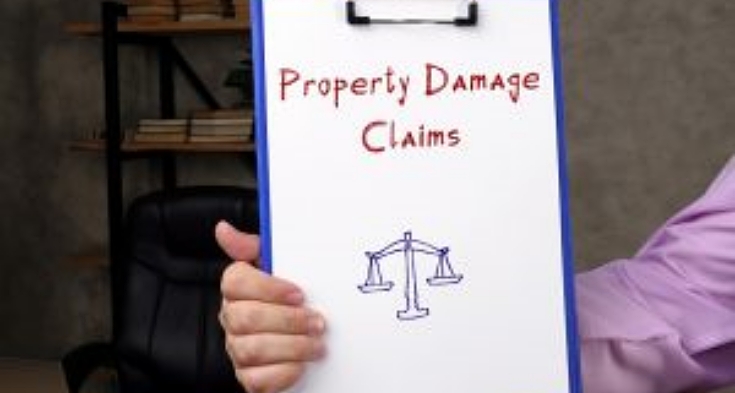
When health care professionals in Florida face administrative complaints from the Florida Department of Health, many find themselves confronted with an unfamiliar and stressful process. Florida DOH citations, also referred to as administrative complaints, can take the form of investigations, probable cause determinations, administrative hearings, and even final disciplinary orders. However, what many licensees do not realize is that once the Florida Department of Health or DOH renders a final order, a powerful right springs into action: your right to judicial review. Understanding how administrative law works in Florida can make all the difference in preserving your career and professional reputation.
In this expansive guide, we will walk you through how complaints arise, what administrative law hearings involve, and precisely how and when you can invoke your right to judicial review under Florida Administrative Procedure Act§ 120.68. Let’s begin by understanding the overall enforcement machinery.
The DOH Administrative Complaint Process in Florida
When a complaint is made against a licensed healthcare practitioner, whether it involves alleged misconduct, record-keeping errors, malpractice, or unlicensed activity, the DOH’s Consumer Services Unit reviews it for “legal sufficiency,” meaning the complaint must include ultimate facts suggesting a possible violation of law or rule. If sufficient, the complaint moves forward, is assigned to an investigator, and may lead to an administrative complaint.
The Prosecution Services Unit, made up of DOH attorneys, evaluates the investigation and decides whether to issue an emergency order, file an administrative complaint, or close the case.
Key statutes like F.S. 456.072(1)(f) covering departures from standards of practice are often invoked early in these processes and can trigger investigations even for non-intentional conduct.
If the DOH issues an administrative complaint, you typically receive notice along with an election of rights form, where you must respond, requesting a formal hearing, informal hearing, or negotiating a settlement. Failing to respond within the deadline can result in a default action.
Formal Administrative Law Hearings and Final Orders
If you request a formal hearing, the case proceeds before the Division of Administrative Hearings (DOAH), where an Administrative Law Judge (ALJ) conducts a hearing under the rules of civil procedure and evidence. After the hearing, the ALJ issues a Recommended Order, which the DOH uses to issue a Final Order. Only issues raised during the hearing will be part of the record.
Once the DOH issues a final order—whether that means reprimand, probation, fines, or license suspension or revocation—you become “adversely affected.” At that point, your right to judicial review becomes available.
Your Right to Judicial Review under § 120.68, Florida Statutes
Florida law protects licensees through the Florida Administrative Procedure Act, specifically through Section 120.68, which grants the right to judicial review of final agency actions. Here is how it breaks down:
- What qualities? Any final action that adversely affects you, such as a disciplinary final order by the DOH Board, entitles you to review.
- When do preliminary orders count? Sometimes an intermediate or procedural order can be reviewable immediately if waiting for final action would not provide an adequate remedy.
- Where to file? You may appeal in the District Court of Appeal where the DOH maintains its headquarters (Tallahassee/First DCA) or where you reside .
- Time limit? You must file within 30 days of rendition of the final order, that is, when the order gets signed and filed with the agency clerk .
The Agency Clerk in Tallahassee handles filings, including Notices of Appeal Florida Department of Health.
Supersedeas (Stay) of Disciplinary Action
Filing an appeal doesn’t automatically stay enforcement of the DOH’s final order, so if it suspends or revokes your license, you need a supersedeas or stay.
Florida law says: a supersedeas is a matter of right if your license is suspended/revoked unless the DOH shows it would endanger health or safety. You can request this from the appellate court.
Standards of Review: What the Court Can and Cannot Do
When the case reaches the court, review is based solely on the record, no new evidence can be introduced.
Courts can reverse or remand the agency’s decision if they find:
- No hearing was held when facts were disputed.
- Findings of fact lack competent, substantial evidence.
- There’s a procedural error or misinterpretation of the law.
- The agency abused its discretion.
Importantly, the court doesn’t reweigh evidence; it only checks whether the agency acted within bounds.

Why This Matters for Florida Healthcare Professionals
Medical professionals, nurses, dentists, therapists, pharmacists, and others regulated by DOH must understand these processes. Missing a deadline, failing to request a hearing, or not asserting your rights at the right time could cost you your professional license.
As illustrated in case law, failure to prove you timely requested a formal hearing can result in losing your right to that hearing and facing harsher penalties by default.
Elevate Legal Services, PLLC: Your Partner for Florida DOH Defense
At Elevate Legal Services, PLLC, based in Boca Raton, we defend healthcare professionals throughout Florida against DOH administrative complaints, professional license investigations, disciplinary hearings, and appeals.
Phone: 561 770 3335
Email: [email protected]
We guide you from the moment a complaint is filed, through investigations, hearings, any settlement discussions, and if needed, appeals to the District Court of Appeal. Use our in-depth Florida DOH defense page (internal link) to learn how we navigate the administrative law hearings, help you request stays, craft a compelling record, and preserve appellate issues.
We serve licensees across the state: from Miami Dade to Jacksonville, Tampa Bay to the Treasure Coast. We help professionals who’ve received citations under statutes such as F.S. 456.072(1)(f), F.S. 458.331(1)(x) for alleged malpractice or unlicensed activity citations.
External Resource: Florida Department of Health Enforcement
For more background on DOH’s enforcement options, including reprimand, probation, fines, or license suspension, see the Florida DOH’s Enforcement page.
Putting It All Together: The Process Flow in Context
Here’s how things typically unfold:
- A complaint is filed, and DOH investigates.
- If legally sufficient, DOH may issue a notice, request records, and assign to a probable cause panel under F.S. 456.072(1)(f) or similar statutes.
- You receive an administrative complaint and an election of rights; respond to avoid default.
- If you request a hearing, it goes to DOAH, where an ALJ issues a recommended order, and DOH then issues a final order.
- Once the final order is rendered, you have 30 days from the date of rendition to file a Notice of Appeal and, if needed, request supersedeas from the appellate court.
- The appellate court reviews the not fresh evidence, and may reverse, remand, or declare relief if DOH made errors.
Take Action Now: Protect Your License and Career
If you are a Florida healthcare licensee who has received a DOH citation or administrative complaint, timing and strategy are critical. Missing a deadline or misunderstanding the appeal process can cost you the chance to preserve your license.
Contact Elevate Legal Services, PLLC, today for an immediate consultation. It’s not just about knowing the law; it’s about having the experience to use it effectively on your behalf.
Phone:561 770 3335
Email:[email protected]





